Eamon Moore, managing director, Emit
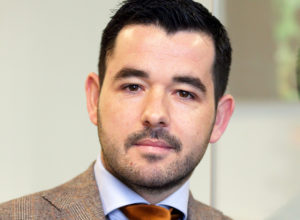 Moore believes that digital transformation “will continue to be a hot topic in 2017. The role of digital in day to day business will increase as organisations look to invest in technology to increase efficiencies and competitive advantage”.
Moore believes that digital transformation “will continue to be a hot topic in 2017. The role of digital in day to day business will increase as organisations look to invest in technology to increase efficiencies and competitive advantage”.
The coming year will also see the continued rise of managed services as companies look to their partner to manage their IT operations, “whether they be on cloud, on premise or hybrid”.
He predicts organisations will start to make more use of data and business intelligence in 2017 as they seek to “transform raw data into meaningful and useful information to assist informed planning and decision making”.
Moore says that IT as a Service will become more mainstream as businesses consume IT services on a flexible plan with an IT provider, “scaling up and down with ease while being able to budget for IT costs on a monthly basis”.
Businesses will also “place more emphasis on security measures to protect their sensitive data and, indirectly, their business reputation”. At the same time, organisations will continue to promote mobility and collaboration within their workforce and among third parties.
“Finally, 2017 will bring about an increase in automation, both from a channel partner and a customer point of view,” Moore suggests. “The new focus will be on making technology work for you to save time, money and resource costs.
Francis O’Haire, director of technology & strategy, Data Solutions
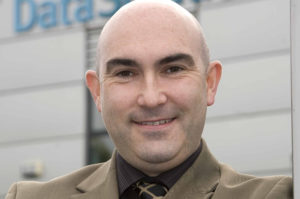 In 2017, organisations will accelerate their adoption of cloud services, O’Haire says, but they will struggle with how to integrate them with their management and security processes.
In 2017, organisations will accelerate their adoption of cloud services, O’Haire says, but they will struggle with how to integrate them with their management and security processes.
“Like every new technology platform that has come before, cloud solves many problems but introduces many more by adding yet another layer to be managed and secured,” he comments. “Just as client-server didn’t fully replace mainframe and web didn’t fully replace client-server, so cloud will exist in a hybrid form with on-premise IT for the foreseeable future.”
He believes channel partners will need to offer customers solutions and assistance to help them plan, build, secure, manage and access the complex combination of on-premise and public cloud-based infrastructure, applications and data.
“Organisations will favour solutions which enable them to use cloud as and when it suits them, without the fear of being locked into one particular cloud provider or another,” O’Haire predicts. “Partners who can help deliver this level of flexibility will remain more relevant to their customers than those who tie down their options.”
Ciaran Hynes, channel sales director, HPE Ireland
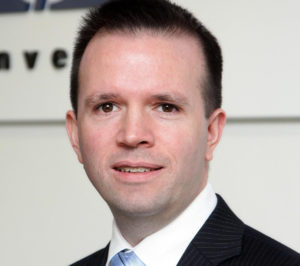 “The only constant in the IT industry is change,” Hynes exclaims. “While 2017 may not be a year that will see tectonic shifts similar to what we have seen in the last decade (virtualisation, smartphones, cloud), I believe it will be a significant year in which the industry evolves to the next iteration of how we operate.”
“The only constant in the IT industry is change,” Hynes exclaims. “While 2017 may not be a year that will see tectonic shifts similar to what we have seen in the last decade (virtualisation, smartphones, cloud), I believe it will be a significant year in which the industry evolves to the next iteration of how we operate.”
Cloud will continue to grow. There was greater growth in private cloud versus public cloud in 2016 and he expects that trend to continue in 2017. “Ultimately, this is because customers are still on the journey to hybrid where they move workloads to optimise costs and response time to business needs,” Hynes argues. The requirement to move workloads has also driven another significant trend: the adoption of container technology.
Docker is emerging as the fastest growing and most significant player in the container space, he says, and HPE is the only vendor that can OEM and provide L1 and L2 support with Docker. “We also believe our software defined ‘composable infrastructure’ technology (HPE Synergy) complements this requirement for fluidity when deciding where and how to build-ship-run applications,” Hynes claims. “As customers build towards hybrid, we will also see requirements for Opex versus Capex payment models.”
Rob Curley, managing director, Singlepoint
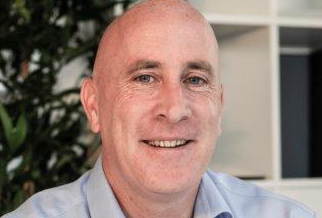 “2016 has been a very good year,” says Curley. Singlepoint has picked up a lot of new business with existing clients across many of its key areas, such as IoT, cloud, data management, machine learning, analytics and digital.
“2016 has been a very good year,” says Curley. Singlepoint has picked up a lot of new business with existing clients across many of its key areas, such as IoT, cloud, data management, machine learning, analytics and digital.
He claims that analytics is “becoming huge”. Digital has always been big, he adds, “and I don’t see that changing”. There’s a lot of opportunity in opening up systems, digitising, open APIs, micro-services and wrapping them up and delivering them in an innovative manner. “That’s what clients are looking for,” he argues, “they’re looking to do it in bite-sized chunks but to do it quickly. A lot of people are mobilising digital and innovation centres to deliver on machine learning, AI, IoT and analytics. The key to be able to do that is to change the culture and change the mindset.”
Curley predicts a lot of challenges in 2017 are “going to be similar to 2016. There are a lot of players in the channel offering very disparate offerings at very different layers. It’s going to be about how to plug it all together. There are lots of disparate players providing offerings and there’s a lot of data being generated across cloud or internal systems. There is more and more of a requirement from customers to plug it all together which means a lot of new and challenging system integration across open API layers to get in and across company data.”
David Fearne, technical director, Arrow ECS
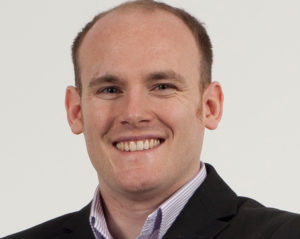 “I think cognitive computing is touching every area of IT and will really take off in 2017,” Fearne says. In the security industry specifically, cognitive has become so prevalent because you can achieve an autonomous understanding of the network. It’s almost like you have a security advisor standing over the shoulder of every single person.”
“I think cognitive computing is touching every area of IT and will really take off in 2017,” Fearne says. In the security industry specifically, cognitive has become so prevalent because you can achieve an autonomous understanding of the network. It’s almost like you have a security advisor standing over the shoulder of every single person.”
One of the most interesting uses of cognitive computing he has seen is a system that learns how a person types and stores it securely on their machine – if someone else types (even if the password is correct) and the computer thinks they aren’t the right person, it will lock them out and change the password.
“It’s all about proactively looking for anomalies and classifying them in the network, rather than having issues for days, weeks, months and then patching the problems retrospectively,” he adds. “That’s why cognitive is so powerful, any repetitive task a human can do can now be replaced by computing.”
He predicts cognitive computing will move towards “full-on AI” by the end of 2017. Fearne cites the example of a recently built translation engine that is translating new languages it’s never seen before (such as Cantonese and Mandarin). “It’s learned and adapted itself, and grown organically in such a way that it’s become self-intelligent. We’ve just got to work out how.”







Subscribers 0
Fans 0
Followers 0
Followers